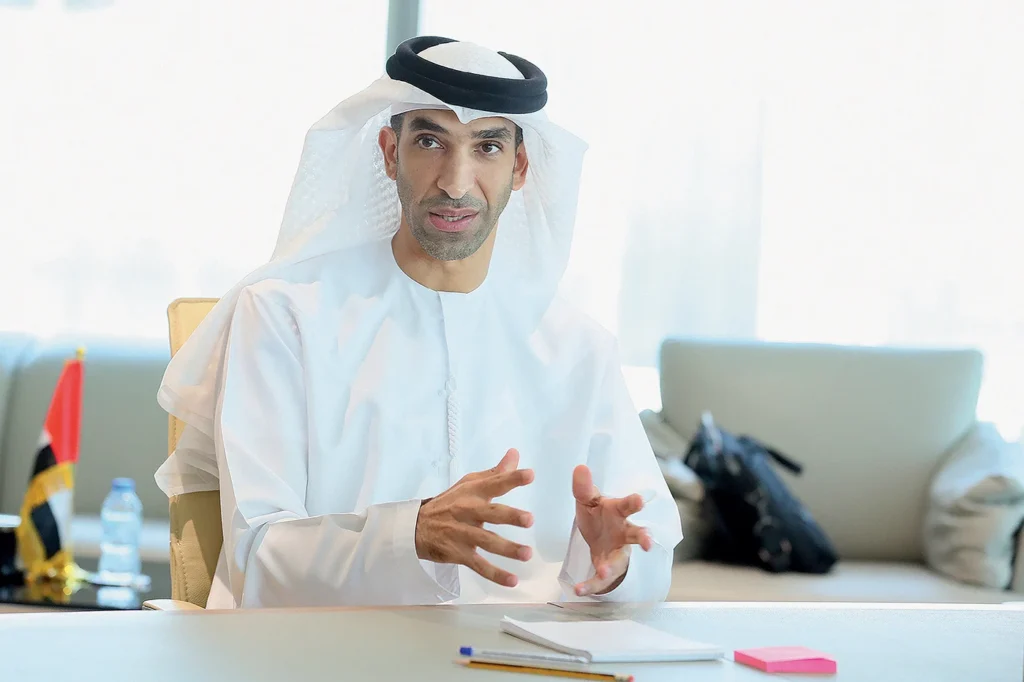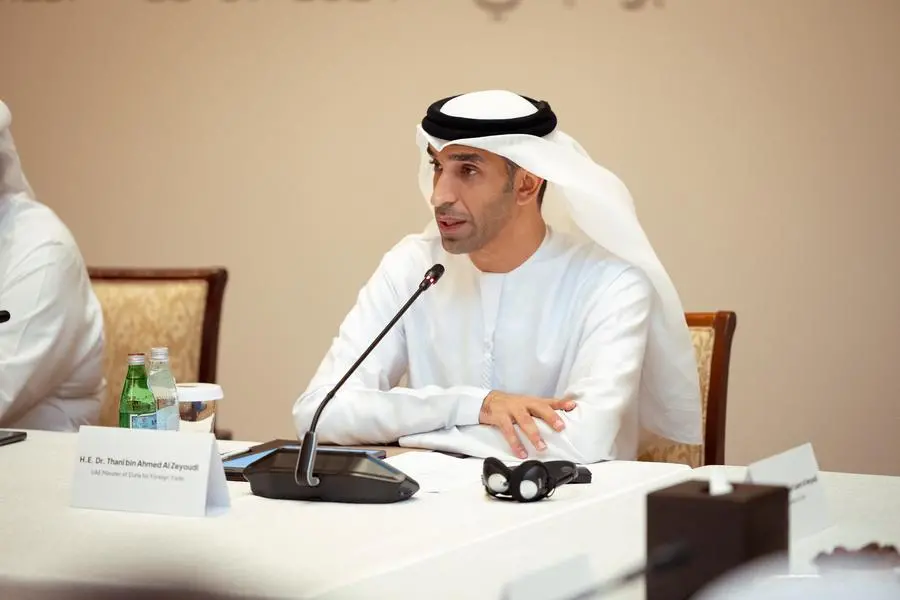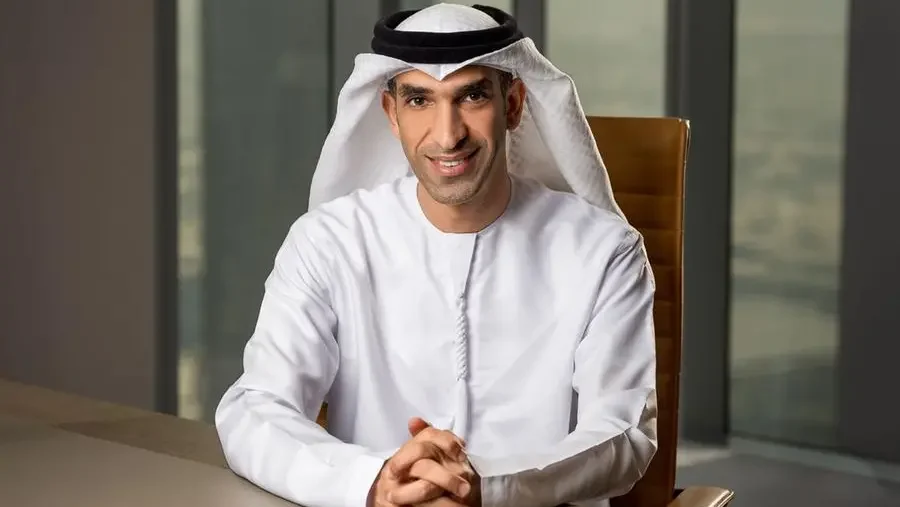In a major move to strengthen its international economic presence, the United Arab Emirates has officially launched a new Ministry of Foreign Trade. The ministry aims to focus on building stronger trade relationships with countries around the world, and to support the UAE’s economic diversification goals. Dr. Thani bin Ahmed Al Zeyoudi, who previously held the position of Minister of State for Foreign Trade, has been appointed to lead the newly formed ministry.
This change is part of a broader government restructuring that reflects the UAE’s vision for the next decade—a vision that involves deeper global partnerships, a more flexible economy, and increased support for non-oil sectors.
Why Create a New Ministry?
The UAE’s leadership believes that the global trade environment is changing rapidly. Supply chains are shifting, regional partnerships are being redefined, and digital trade is becoming more important than ever. In response to these changes, the country decided to form a ministry that focuses solely on foreign trade.
The goal is to create a specialized government body that can work closely with international partners, identify new trade opportunities, remove barriers to exports, and help UAE-based companies grow in global markets.
The new ministry is also expected to help attract more foreign investment to the country, especially in emerging sectors like technology, green energy, food security, and logistics.
Thani Al Zeyoudi: The Right Man for the Job

Dr. Thani Al Zeyoudi is not new to international trade. In fact, he’s been at the heart of many of the UAE’s recent trade agreements and economic partnerships. As the Minister of State for Foreign Trade, he led efforts to sign Comprehensive Economic Partnership Agreements (CEPAs) with countries such as India, Indonesia, Türkiye, and South Korea.
These deals have already started to bear fruit, with increases in trade volumes, new job opportunities, and greater business collaboration. Under his leadership, the UAE has become known for moving fast and thinking strategically when it comes to international trade.
His appointment to lead the Ministry of Foreign Trade is widely seen as a sign of trust and confidence in his ability to take the UAE’s global trade ambitions to the next level.
What Will the Ministry Do?
The new Ministry of Foreign Trade will take over the foreign trade portfolio and operate independently, although it will still work in coordination with other economic departments and ministries.
Some of the key responsibilities of the ministry include:
- Negotiating new trade deals and expanding existing ones
- Supporting UAE exporters to enter and succeed in international markets
- Removing trade barriers and resolving disputes
- Promoting the UAE as a global business hub
- Helping small and medium businesses (SMEs) grow through global partnerships
- Monitoring trade trends and providing data-driven insights to the government
In simple terms, the ministry will be like the UAE’s business team for the world—looking out for new opportunities, protecting national interests, and building long-term economic friendships.
UAE’s Bigger Economic Picture
This decision comes at a time when the UAE is pushing hard to become a top global destination for business, trade, and innovation. The country’s “We the UAE 2031” plan is a ten-year vision that aims to double the national economy, increase non-oil exports, and attract large amounts of foreign investment.
Creating a ministry dedicated to foreign trade supports this vision. It gives the country more focus, better tools, and stronger leadership to navigate a fast-changing world economy.
The UAE’s strategy is also people-centered. It includes developing Emirati talent in trade and diplomacy, offering more jobs for young professionals, and ensuring that businesses of all sizes—from startups to multinational firms—have the support they need to grow.
International Reactions and Business Community Response
The global business community and trade experts have reacted positively to the news. Many believe that this move shows the UAE’s commitment to leading in the global economy—not just as a trading hub, but as a smart and forward-thinking partner.
Several foreign ambassadors and trade partners have expressed interest in working closely with the new ministry. This includes exploring joint investment projects, innovation-focused trade zones, and initiatives to support startups across borders.

Local business owners and entrepreneurs also welcomed the announcement. Many hope that the ministry will help reduce bureaucracy, open more international doors, and make it easier for companies in the UAE to access global markets.
UAE’s Trade Growth So Far
Even before the new ministry was created, the UAE’s trade numbers were showing impressive growth. Non-oil foreign trade crossed AED 2 trillion in recent years, marking a major milestone. The country has built strong trade ties with Asia, Europe, Africa, and the Americas.
The digital economy is also playing a big role, with e-commerce and fintech becoming major drivers of cross-border business. The UAE’s smart infrastructure, digital government services, and free zones make it an attractive destination for global companies looking to set up regional headquarters.
Now, with the Ministry of Foreign Trade in place, experts expect these numbers to grow even faster.
What’s Next?
With Thani Al Zeyoudi at the helm, the Ministry of Foreign Trade is expected to hit the ground running. Plans are already underway to negotiate new agreements with countries in Latin America, Africa, and Southeast Asia.
In addition, the ministry will play a key role in major global trade forums, conferences, and summits. It will act as the UAE’s voice in international economic discussions and policy shaping.
The ministry also plans to launch programs that support innovation in trade—such as using artificial intelligence to forecast market trends, or blockchain to secure trade transactions.
Final Thoughts
The launch of the Ministry of Foreign Trade is a bold and timely move. It reflects the UAE’s ambitions to remain at the center of the global trade map, while also preparing its economy for the future. With experienced leadership, a clear mission, and strong support from the top, the new ministry is expected to bring real benefits to businesses, investors, and the country as a whole.
Thani Al Zeyoudi’s new role is not just a promotion—it’s a signal that the UAE is serious about shaping the next chapter of global trade. The world will be watching closely, and so will the many entrepreneurs, investors, and professionals ready to be part of that journey.
Also read: Philippines Win Historic First Title at Women’s Ice Hockey Asia Cup



